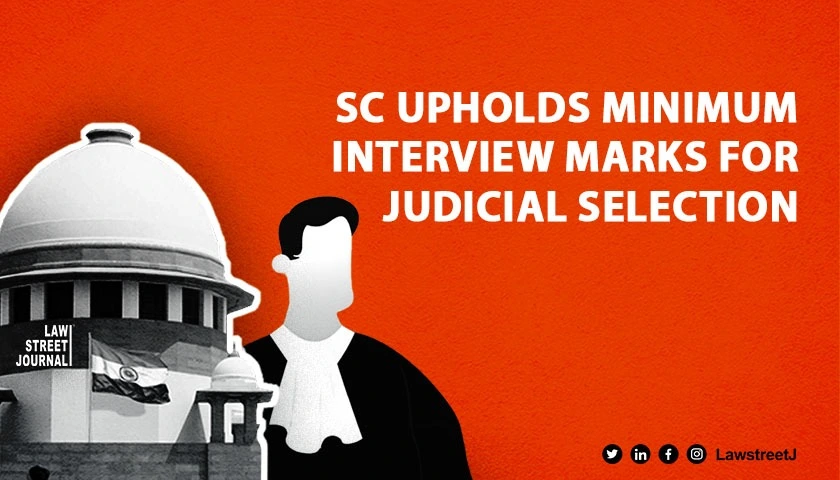NEW DELHI: The Supreme Court on Monday said while the written exam measures knowledge, the interview reveals character and capability as it upheld the prescription of minimum qualifying marks for interview for post of judges in district courts of Bihar and Gujarat.
"A person seeking a responsible position particularly as a judicial officer should not be shortlisted only by his performance on written examinations on paper, but also by the ability to articulate and engage in the role of a presiding officer in a court," a bench of Justices Hrishikesh Roy and Prashant Kumar Mishra said.
The court dismissed writ petitions questioning the selection process initiated in Bihar and Gujarat with a minimum cut off marks for interview to the post of judicial officers.
The court said that the prescription of minimum qualifying marks for interview for post of judges in district courts is permissible and this is not in violation of its previous judgment in All India Judges (2002) which accepted certain recommendations of Justice K J Shetty Commission.
"For recruitment of judicial officers, ideally the effort should be to not only test the candidates intellect but also their personality. An interview unveils the essence of a candidate their personality, passion, and potential. While the written exam measures knowledge, the interview reveals character and capability," the bench said.
The court said the Shetty Commission's recommendations are in the nature of guidelines to be seen in the context of the rules governing recruitment of judicial officers.
It also said the decision in All India Judges (2002) cannot be seen to refuse adequate elbow room to prescribe qualifying marks in the interview segment to ensure the selection of the best possible person.
"When the minimum cut-off of 20% for the Bihar recruitment and 40% for the Gujarat recruitment are taken into account, those cannot be considered to provide a high threshold if one keeps in mind that the recruitment is for selection of judicial officers," the bench said.
The court also noted the written test cannot possibly capture the full spectrum of the individual's abilities and potential.
The bench also said the reliance on competitive exams or written tests as the sole determinant of merit is increasingly being frowned upon.
The court referred to philosopher Michael Sandels book, The Tyranny of Merit, successful candidates often feel a sense of meritocratic hubris overlooking how factors such as socio-economic background, caste, gender, and other structural inequalities can shape opportunities and outcomes.
In its judgement, the court also declared the processes such as moderation should be preferably set out in the rules to ensure transparency, certainty and clarity and avoid dilemmas in the selection process.
It also stressed on adhering to time line in selection process of judicial officers after noting a report indicating the State of Bihar took 945 days to complete the recruitment process computed from the date of advertisement (March 9, 2020) to the date of final result (October 10, 2022).
The bench also directed this judgment should be brought to the notice of the Chief Justices of all the High Courts in India, to enable all the stakeholders to take consequential steps.

















